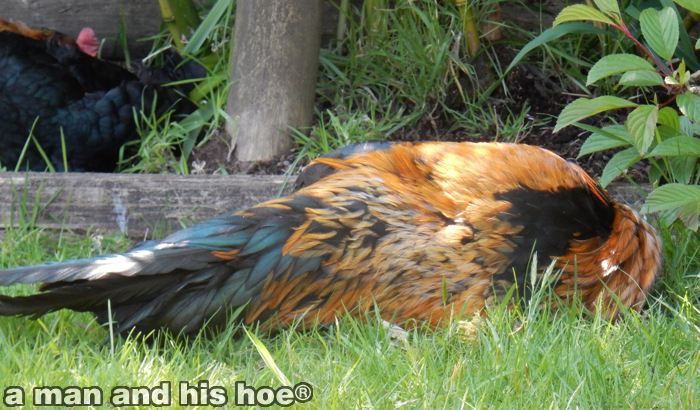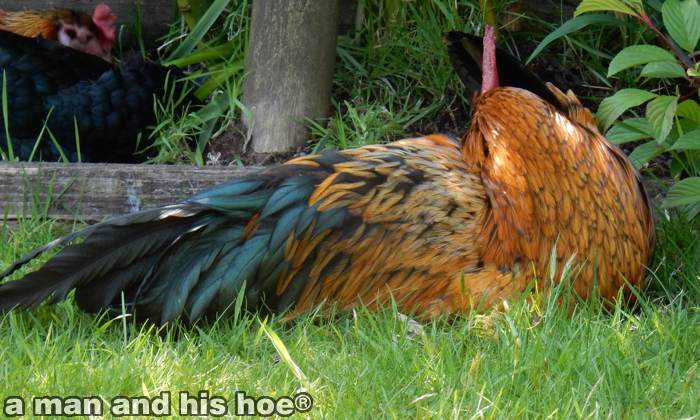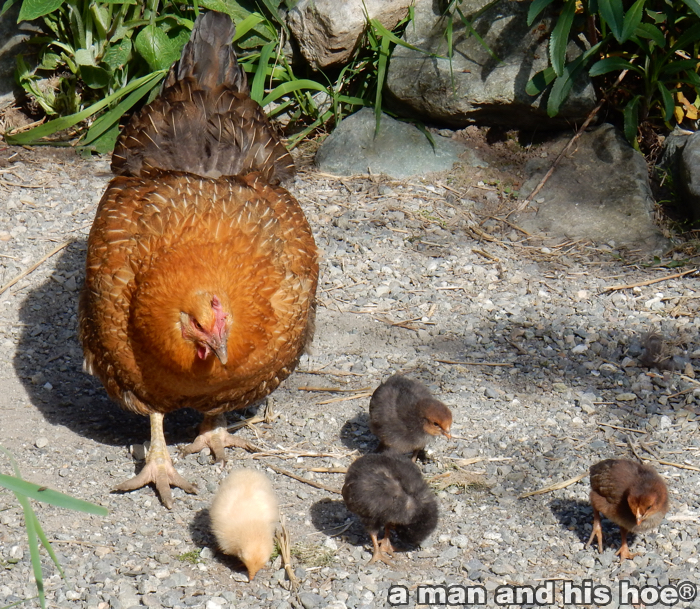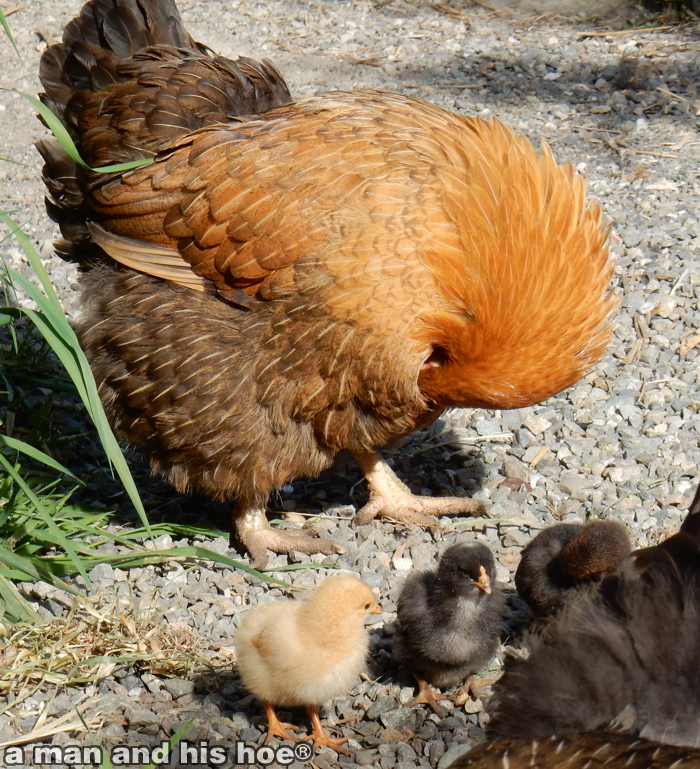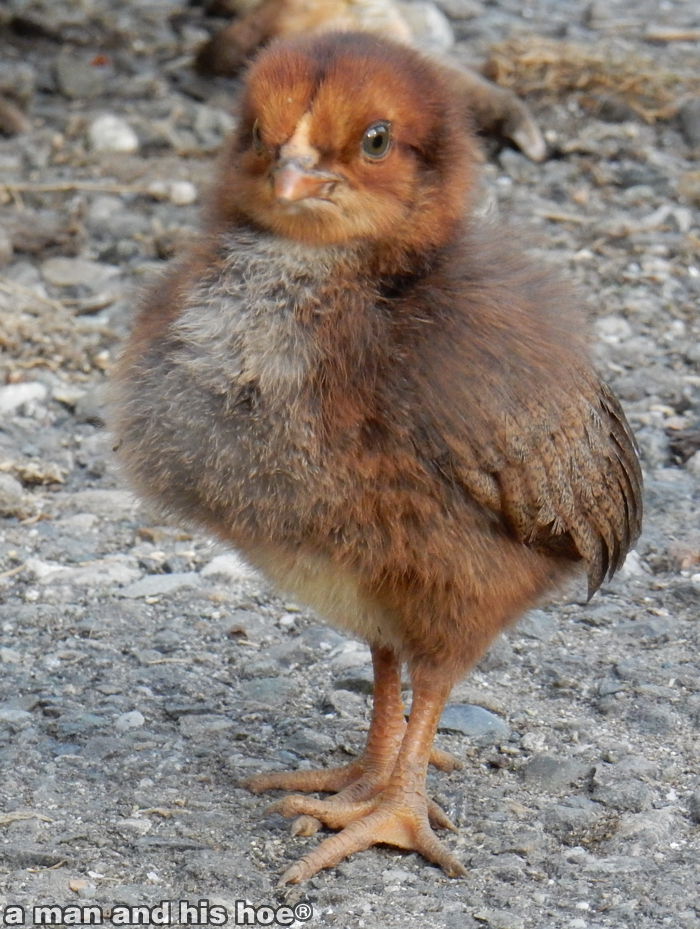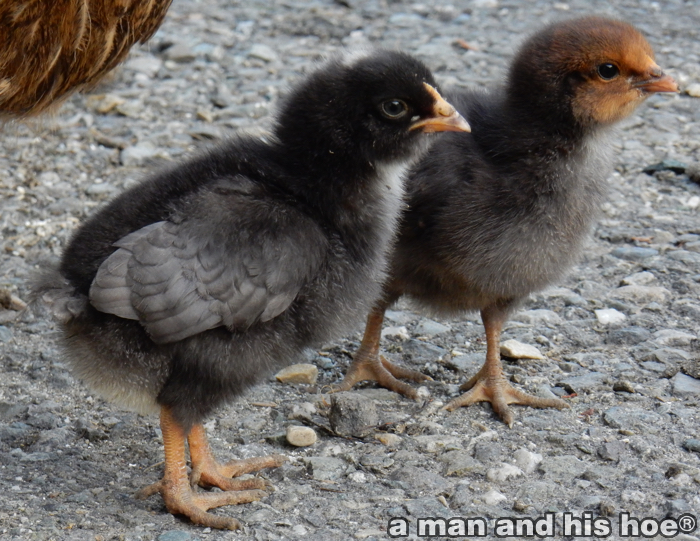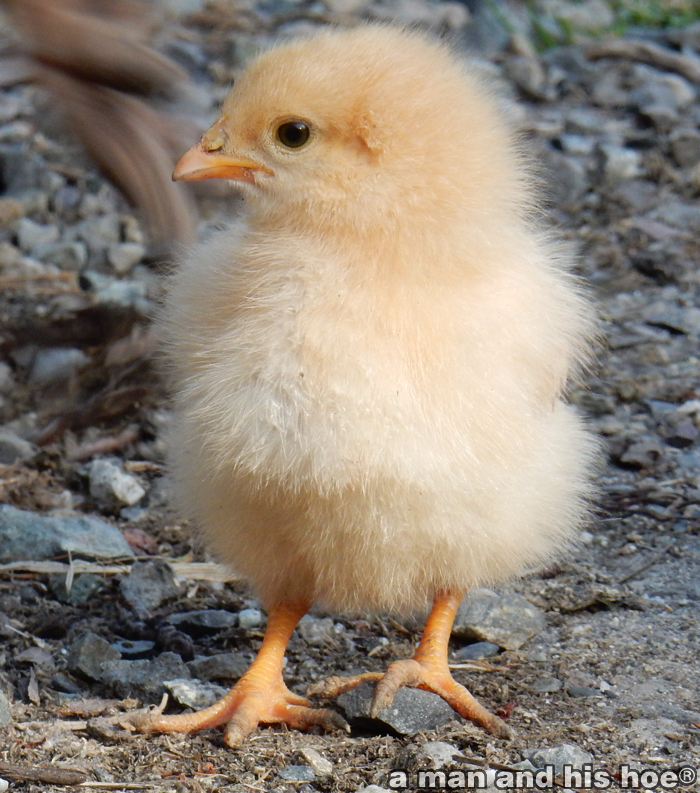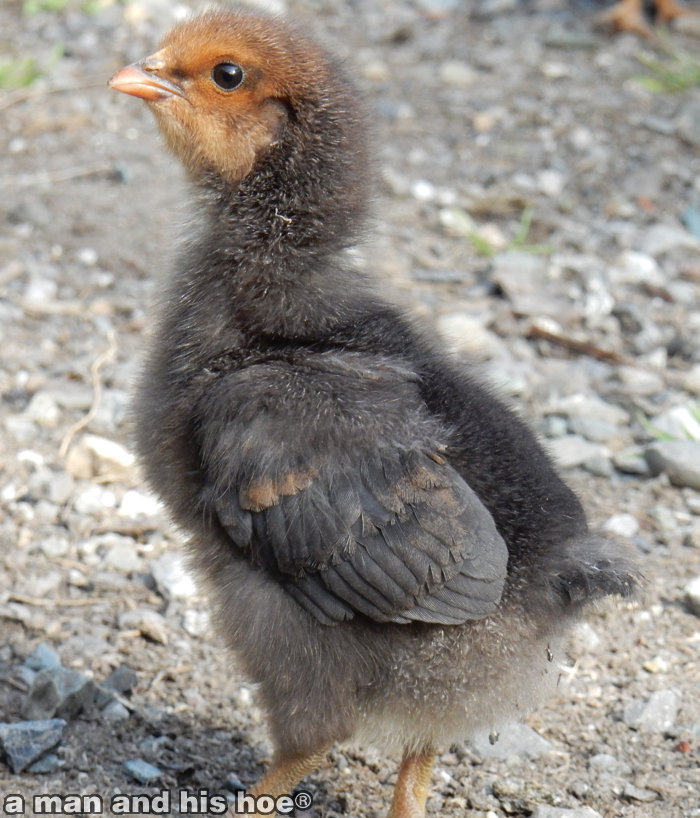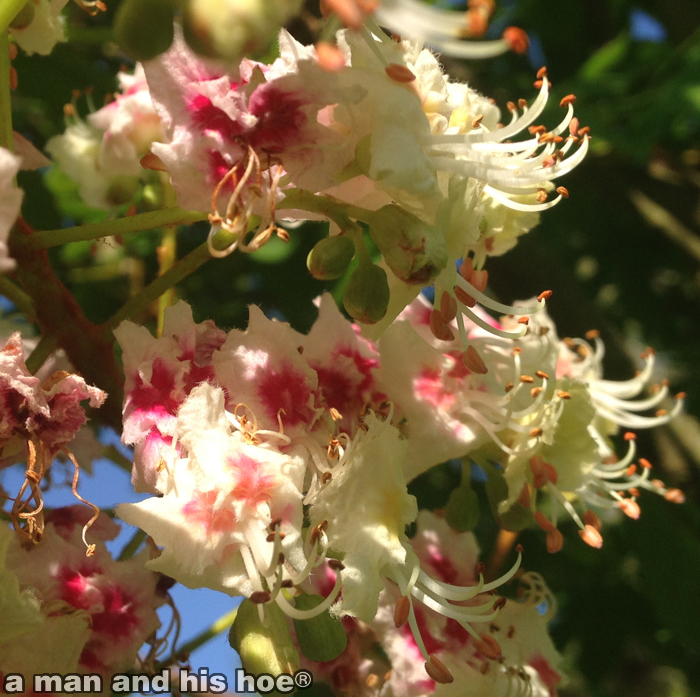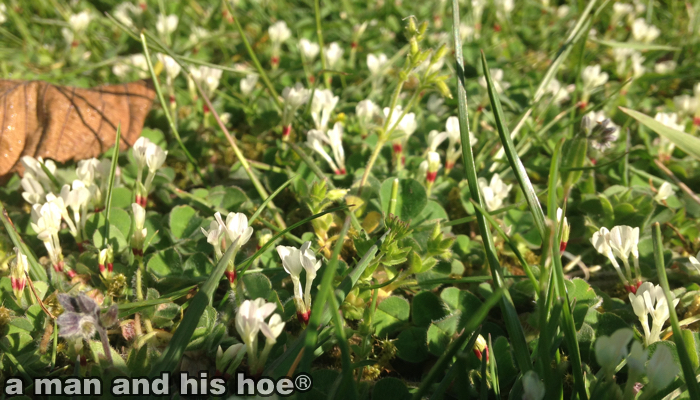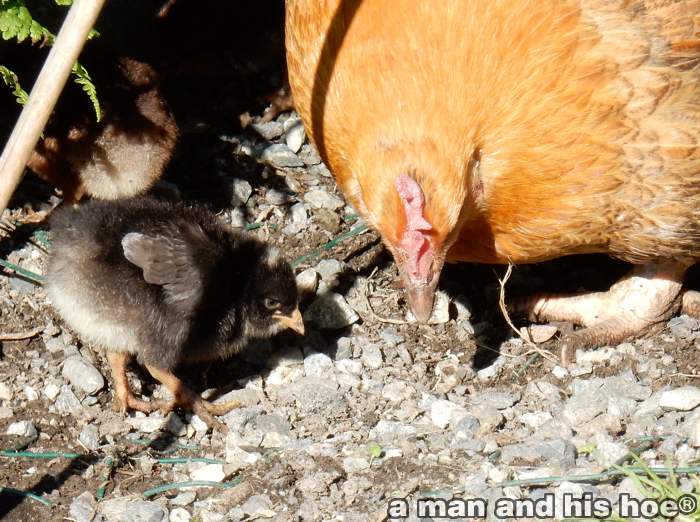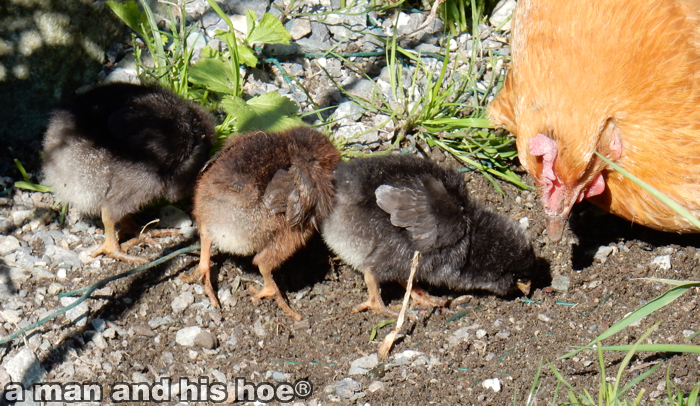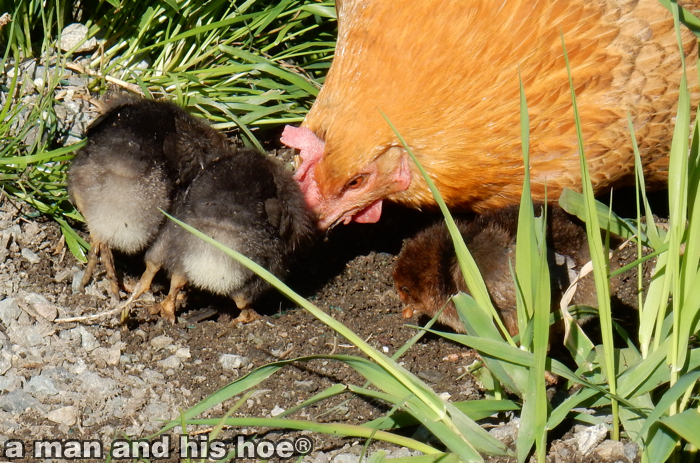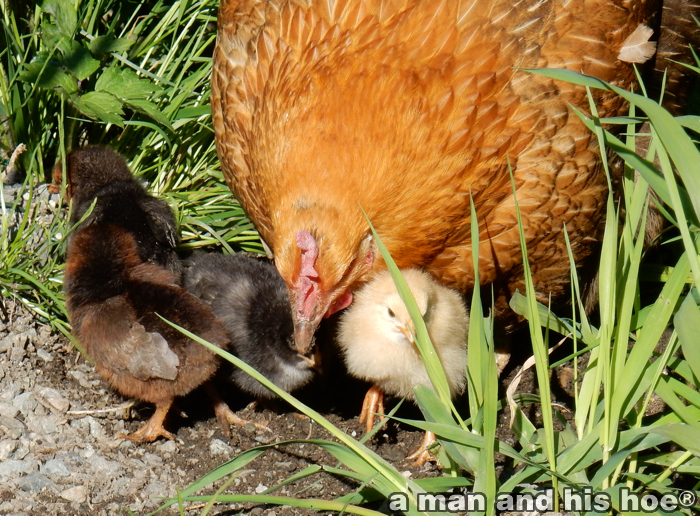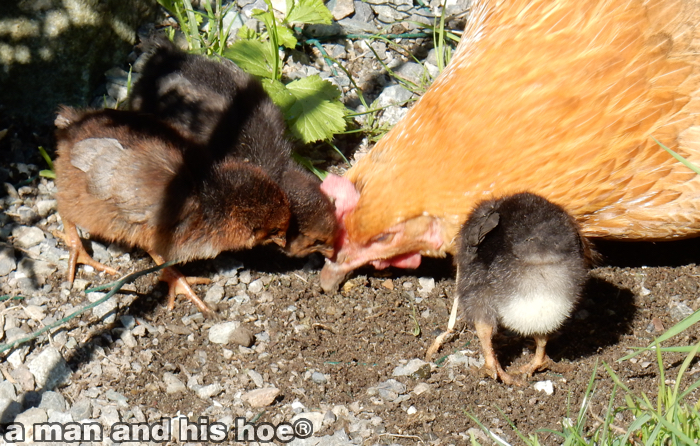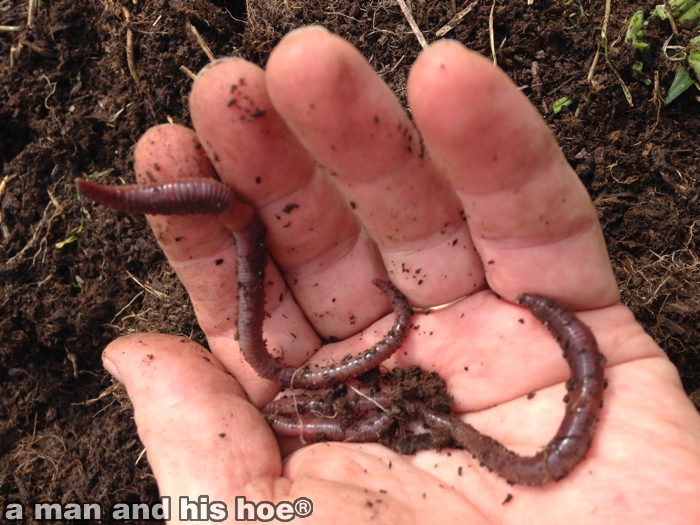
Here are a few of the huge army of workers I have toiling away in the rows of growing produce. The produce beds are fenced in so the earthworms are safe from the chickens. One of the many helpful things the earthworms do is fertilize the growing vegetables. I find the most earthworms right next to the roots of plants. There, they eat the bacteria, protozoa, rotifers, nematodes and fungi that the plants are cultivating with the cakes and cookies (in the form of sugars, fats, and proteins) the plants are exuding into the soil through their roots. As the earthworms feast around the roots, they leave behind nutritious wastes the plants need. It’s a complicated system of “I feed you – you feed me”, involving millions and billions of organisms. And it falls apart when we humans interfere by adding our chemical fertilizers, fungicides, herbicides and pesticides.
Plants are not helpless organisms. By controlling which sugars and proteins they exude out their roots, and there are millions of varieties of sugars and proteins, they cultivate the mix of bacteria and fungi which will serve them the best. Amazing work by organisms without a brain. Which shows you don’t need a brain to be successful and smart.
